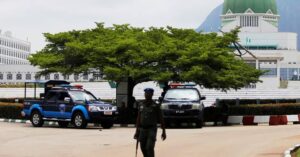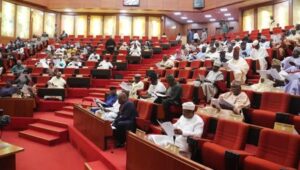In a bold move to combat the escalating drug trafficking crisis, Nigeria’s Senate has proposed stringent penalties, including the death penalty, for offenders involved in drug-related crimes. The proposed amendment seeks to replace the current maximum sentence of life imprisonment with the death penalty, signaling a significant escalation in Nigeria’s approach to tackling drug trafficking.

The proposed legislation, presented during Thursday’s plenary session by Senator Mohammed Monguno, emanated from a comprehensive report by the Senate committees on judiciary, human rights, legal matters, and drugs and narcotics. Advocates of the amendment argue that imposing the death penalty would act as a potent deterrent against drug trafficking, outweighing the efficacy of life imprisonment.
However, the proposal has sparked debate among lawmakers, with some expressing reservations about the irreversible nature of the death penalty and the potential for wrongful convictions. Critics highlight concerns regarding due process, judicial integrity, and the risk of miscarriages of justice, underscoring the need for careful consideration and safeguards in implementing such severe penalties.
Also, read; Uganda Named Best Investment Destination in Africa at Annual Investment Meeting
The House of Representatives had previously passed a version of the bill without the death penalty provision. To finalize the legislation, a joint committee comprising members from both the Senate and the House will convene to harmonize the differing versions before submitting the bill for presidential approval.
The proposed amendments signify Nigeria’s determination to address the multifaceted challenges posed by drug trafficking and substance abuse. By adopting a more punitive stance, the government aims to curb illicit drug activities, protect public health, and safeguard communities from the adverse effects of narcotics proliferation.
As Nigeria navigates the legislative process to enact these reforms, stakeholders emphasize the importance of striking a balance between stringent law enforcement measures and safeguarding human rights, ensuring that justice is served without compromising fundamental principles of fairness and equity.
